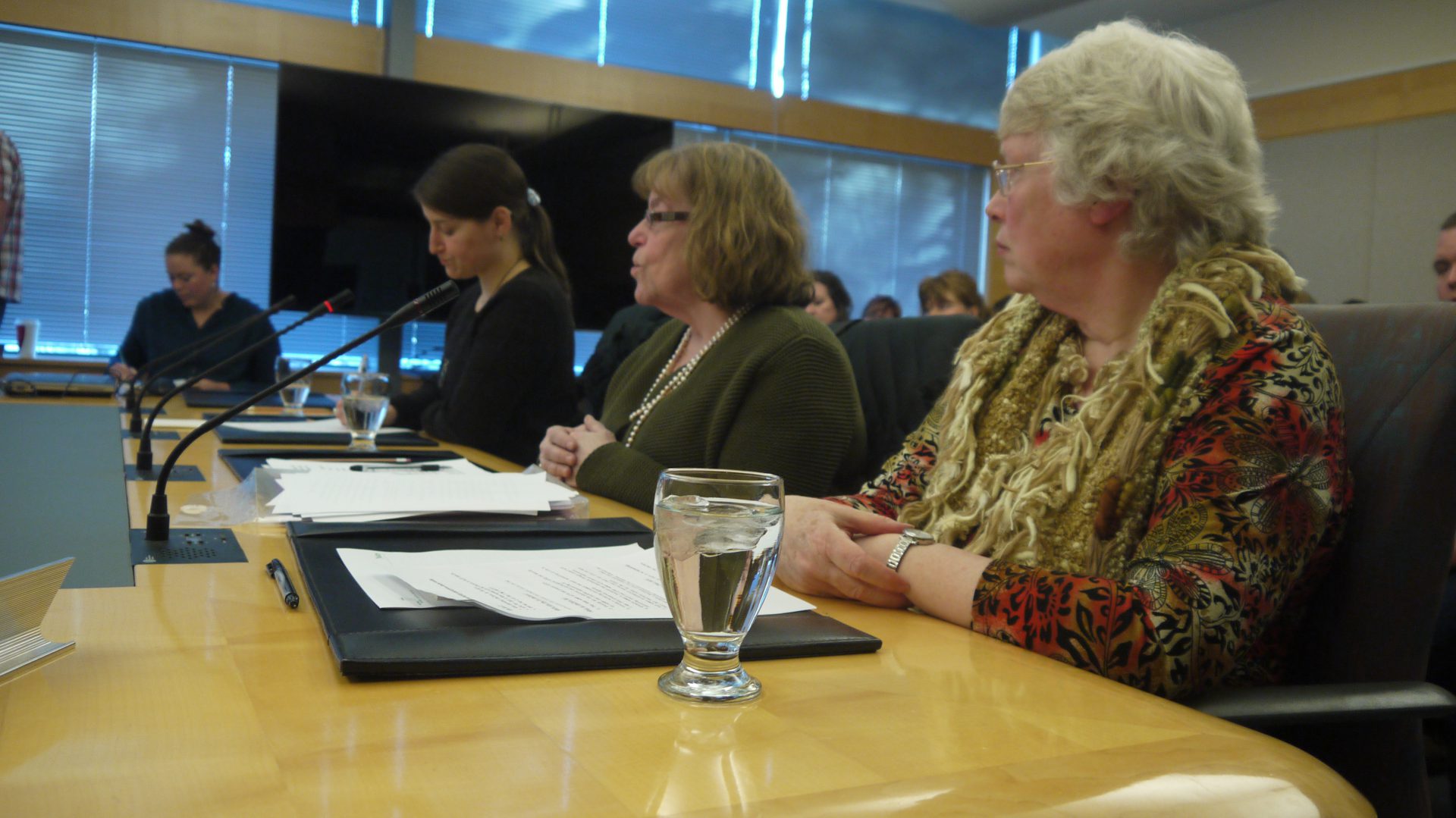Emergency shelters in the Northwest Territories aren’t being funded adequately, according to the Coalition Against Family Violence.
The group, which consists of a number of different agencies, delivered that verdict during a presentation to MLAs on Wednesday.
The coalition also provided members of the standing committee on priorities and planning with a list of priority areas and recommendations for their consideration.
Key priorities include changing language and attitudes around family violence, enhancing emergency response options for victims and developing programs for healing.
Lyda Fuller, executive director of YWCA Yellowknife, is particularly concerned about funding formulas – or the general lack thereof – for the territory’s five emergency shelters.
With funding shortfalls, she’s worried about the sustainability of some of the facilities.
“The shelters in the NWT, with the exception of our shelter in Yellowknife, are not adequately funded,” she said.
“And the funding is not tied to the number of beds, it’s not tied to the cost in the community.
“There is no methodology that drives the funding to shelters and there’s no mechanism in place to provide any regular increases.”
Of the territory’s five emergency family shelters, one is operated in Yellowknife, one in Hay River, one in Fort Smith, one in Inuvik and one in Tuktoyaktuk.
But Fuller says funding varies significantly, with the shelter in Tuktoyaktuk receiving just over a third of what the one in Yellowknife gets.
Annual funding amounts for NWT emergency shelters:
- Yellowknife: $687,000
- Fort Smith: $515,000
- Hay River: 513,000
- Inuvik: $450,000
- Tuktoyaktuk: $266,000
“We’re recommending that we develop and introduce a funding formula that accounts for beds, size and different shelter costs and operations,” said Fuller.
“Shelters are lifelines for women and children and we need to keep those lifelines strong and resilient so that they are there when women need them.
“The Northwest Territories has epidemic rates of family violence that are five times higher than the national average.”
Fuller says NWT shelters receive most of their funding from the territorial department of health. They’re also supported by community donations and have successfully lobbied the federal government for funding in the past.
Fuller told MLAs a limited inflow of cash can inhibit a shelter’s ability to attract and retain staff. It also creates health and safety concerns for residents who are forced to live in unsanitary conditions.
Back In 2011, the coalition provided MLAs with 19 recommendations to address the issue of family violence in the territory, with some of them being acknowledged and even receiving funding since.
Kam Lake MLA Kieron Testart says it’s incumbent upon MLAs to deal with the matter of family violence head-on.
“This issue … has reached a point that is no longer acceptable,” he said.
“The priorities document that we’ve agreed on and released mentions it as a family violence crisis – not a problem, not a situation, but a crisis.
“You can be assured that members of the 18th Assembly have recognized how serious this is and are going to be working towards meaningful action.”
Testart says it’d be beneficial for MLAs to see what funding formulas for shelters look like in other jurisdictions.
Fuller says she’s in the process of obtaining that information and has been particularly impressed with what she’s seen out of Quebec.
Victims assume responsibility for violence
Often times, Fuller says victims and witnesses to family violence feel they are to blame for someone else’s violent behaviour.
“So many kids think it’s their fault or they should be able to do something to prevent it,” she said.
“I will never forget – in my 30 years of working in shelters – we had an eight-year-old girl come into one of the shelters and she used to go to sleep wearing her shoes.
“And we’d say to her, ‘why are you going to sleep with your shoes on?’ And she said, ‘because it’s my job to climb out of the window and get help.’”
Wednesday’s presentation seemed to resonate with MLAs. The coalition has committed to sending a complete action plan to members of the 18th Assembly by May.




